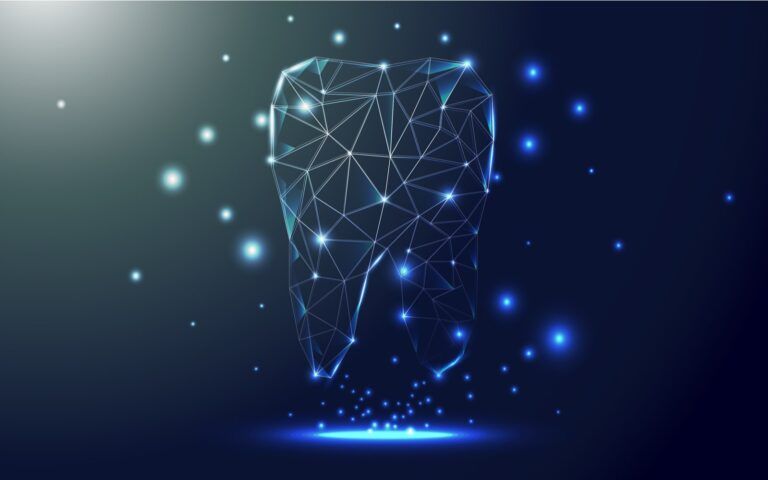Today’s dental practices are moving towards better technologies to treat their patients, and one of the latest advancements to hit the scene is artificial intelligence. By making healthcare more digitalized, dentists can quickly improve how they provide their services to their patients. But what does artificial intelligence look like? We’re here to briefly explore this topic more fully by showing what artificial intelligence can do for people needing dental care.
What Does Artificial Intelligence Provide For Dentists?
Most dentists are equipped with intraoral scanners, cone beam computerized technologies, and 3D printers to provide valuable restorations for their patients. In recent years, however, developments in artificial intelligence have led to AI-driven software for processing and analyzing data on a more accurate scale. This allows dentists to automate responses from dental x-ray scans and provide treatment recommendations from a larger pool of data to treat problems such as cavities and gum disease.
In specialty practices, artificial intelligence can be used as robotic assistants for semi-automated tasks, including taking dental impressions and providing feedback on a patient’s toothbrushing methods. For instance, a cosmetic dentist can work with artificial intelligence to analyze x-rays, measure dentofacial features, and determine treatments for their patients. Although it cannot fully replace the expert eye of a dentist with years of experience, it can act as an assistant in larger areas of information, allowing dentists to take that information and turn it into personalized care.
How Does AI Technology Help Out Patients?
While artificial intelligence can easily benefit dental practices in their diagnosis and treatments, patients on the other side can experience more fluid, professional oral care that’s valuable to their experience. They can experience numerous benefits, including:
- Accurate Diagnosis: Patients needing some form of diagnosis can receive that in a more accurate setting. This includes patients faced with misalignments, root canal problems, gum disease, and other dental issues. In these cases, AI-driven software can process and predict information and provide them with a second opinion on their diagnosis.
- Better Imaging Scans: By providing more accurate images, many dentists can plan out any restorative treatments the patients need to produce healthier, more aesthetically pleasing smiles.
- Aesthetically Pleasing Smiles: Patients searching for aesthetically pleasing solutions can find that it provides them with those solutions through more accurate treatments, as artificial intelligence can be applied to crowns, implants, veneers, and even dentures.
- Easier Transfer of Information: Patients who need help with understanding their treatments can look to their dentist about their oral care. Through the use of AI technology, they can get referrals to specialists for their treatments and receive treatment easily due to better methods of transferring information.
While artificial intelligence is currently in its preliminary stages, it will eventually become a place for dentists to seek out second opinions and better accuracy for their patient’s treatment plans. For more information, make sure to speak with your dentist about what they can provide for you for your dental care treatments with the help of artificial intelligence.


